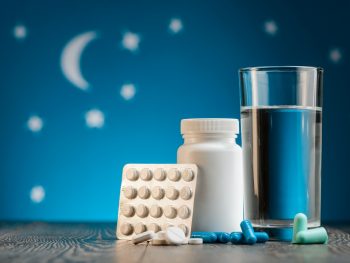“I cannot believe I devoured the whole pizza!”
That’s how it begins. And it climaxes on the couch, or in a low productivity afternoon.
If meals make you fatigued—you’re not alone. In fact, the majority of living things on planet earth go through this phase of postprandial sleepiness (“postprandial” implies after a meal, while sleepiness is self-explanatory), otherwise known as “food coma.”
But Why?
After a brisk intake of carbohydrates, your blood sugar surges instantly, which causes you to “crash” a little while later. The crash makes you sleepy.
What Can You Do About It?
You can read along to know the scientific reasons behind your post-meal-sleepiness and dietary ways to avoid it.
LET’S GET STARTED !!!
THE DIGESTIVE DANCE
To understand the concept of feeling sleepy after eating, you should know what actually transpires in the digestive system when you eat. While you are dining, your stomach generates the hormone gastrin—which activates the processing of the digestive fluids that digest your food. That dissected food then shift into your small intestine as the gut ejects the blood-flow controlling hormone enterogastrone.
Simultaneously, your pancreas discharges insulin to assist your stomach in digesting glucose from the carbs in the meal. The released insulin also pumps an array of amino acids into your brain, including the much-debated sleepy chemical called “tryptophan.”
You may observe that food comas do not occur after every meal. It’s the luxurious, gourmet lunches and dinners that take the “heat” for making you sleepy. It’s because, food rich in carbs (such as processed foods, yogurts, baked goods, sugary drinks, honey, and maple syrup) spike insulin, which then pumps more tryptophan into your brain.
In this physiological context, the tryptophan first converts into serotonin, which gives you the feel-good goosebumps and then turns into melatonin—which is responsible for your drowsiness.
Glucose from the carbs may also block brain cells called orexin neurons, which are responsible for keeping you awake and alert.
Vigilance Signals
One theory proposed by researchers to explain why we stay awake when we are hungry and fall asleep after eating was described in research published in Worm. Yes, that’s the name of a scientific journal. The researchers were studying the eating and sleep patterns of worms and hypothesized that a neurotransmitter (acetylcholine) sends vigilance signals that keep mammals and worms awake when they need to eat. These vigilance signals keep us awake until we satisfy our hunger when we return to what the researchers assume is our default state, sleep.
It seems more likely that different states are triggered by different processes. For example, melatonin signals it is time to sleep.
Vagal Modulation and Neurohormonal Regulation of Your Sleep Centers
An old alternative theory suggested that blood flow to your brain doesn’t change its volume even after a meal. This theory effectively nullifies the reasoning that postprandial sleepiness is actuated by blood flow modification from cerebral vessels to mesenteric ones after you eat.
According to the hypothesis—initiation of vagal afferents and postprandial discharge of gut-brain hormones might be responsible for your postprandial sleepiness through regulation of sleep centers like the hypothalamus.
Also, feeding changes the surroundings of orexins and melatonin hormones apart from promoting vagal activation.
WINTER BLUES MAKES YOU SAD
When days become shorter in the fall/winter months, we often get a bit more tired in the afternoon. This, of course, puts a massive dent in our post-lunch productivity, and we quickly lament our inability to stay focused.
Yet, modern science enlightens us that this snail-pace drowsiness can be attributed to Seasonal Affective Disorder (SAD), otherwise known as “winter blues.” In fact, this temporary depression affects about 10 million Americans every year—primarily due to the switch in the amount of sunlight they are getting when the days are shorter.
Apart from low energy, another typical symptom of SAD is more powerful hunger pangs—compelling you to devour more than just the salad, which felt sufficient during the summer months.
Look, a drop in the sunlight exposure creates a reduction in your serotonin (mood-controlling neurotransmitter) production. Therefore, it’s reasonable to crave more carbohydrates because they also play a role in serotonin production.
MEAL OPTIONS TO BEAT DROWSINESS
You can’t have your scrumptious cake and eat it too—which means you must adjust your dietary patterns to continue to make the world a happy place while you work. Therefore, preserve your energy by trying the following lunch ideas to avoid that afternoon urge to get some tacos and soda.
Trust me, you’ll thank me!
1. Salmon with Greens and Sweet Potato
Vitamin D and Omega-3 acids in fish like tuna, mackerel, and salmon, play a crucial role in mood and cognitive function. Besides being a protein source, animal proteins such as chicken, meat, fish, and eggs also give your body tryptophan, which is an amino acid that precedes serotonin.
Moreover, sautéed leafy greens such as roasted broccoli or kale are loaded with folate, a B-vitamin that is essential to support your cognitive function apart from stabilizing dopamine—the joy-giving brain chemical.
To complete your meal, sweet potato is a fantastic source of slow-burning carbs that your body need to generate serotonin and to keep your energy and blood sugar stable. Also, they are a splendid source of vitamins C and A and antioxidant beta-carotene—all of which are essential for the functioning of your immune system.
2. Spinach Salad with Avocado and Black Beans
It’s a spectacular vegetarian option as iron-heavy black beans transport oxygen through your body—critical for mood, energy, and mental function. Also, Vitamin C augments the assimilation of iron, so add a lot of ingredients that carry this vitamin such as tomatoes and bell pepper then squeeze a tinge of lime over it.
Moreover, avocado is a scrumptious way to integrate healthy fat and fiber to make sure your lunch adds to your afternoon productivity instead of draining it.
3. Soup and Salad
The soup and salad combination is a massively understated classic. It’s a spectacular meal option to keep yourself alert and loaded with energy since this combo offers a refined balance of carbs and proteins as well as keeps your body hydrated courtesy of the salad greens’ water.
It’s recommended to pick a broth-based soup loaded with veggies to have the most amount of nutrition for your buck. Moreover, ensure the soup contains protein-ingredients like meat, chicken, or legumes like lentils or beans—both of which are splendid plant-based sources of folate and tryptophan.
In fact, you should skip wimpy iceberg, and instead go for dark greens to get as many nutrients as possible. Also, try to avoid the bottled salad dressings to save yourself from unwanted sugar and sodium. Alternatively, you can sprinkle a tinge of olive oil and vinegar on the salad as they are remarkable sources of good fats.
4.The Dark Side of Your Dessert
Image by Alexander Stein
If you cannot resist your sweet tooth, you can have a square-sized serving of dark chocolate. It’s because jet black chocolate contains flavonols—a powerful compound that has been studied for its “ability” to lift your mood.
Conversely, if you are struggling with feelings of hopelessness, severe depression, or suicidal thoughts, immediately seek proper medical help. Remember, changing your dietary habits is an essential part of a winning life, but there are times when professional advice is the only way to deal with your depression.
5. Make Green Tea Your Drink of Choice
Image by congerdesign
Dehydration also causes sleepiness. Therefore, a healthy intake of fluids is necessary to continue to boost your alertness. Of course, your best bet is water, but your second best option is green tea!
If you start rounding off your meals with Camellia Sinensis leaves instead of coffee (200MG)—you could be consuming about 165 milligrams less caffeine every time. Moreover, it is packed with healthy-for-your-body antioxidants.
CONCLUSION
The majority of living things experience postprandial sleepiness a.k.a food coma, because after a quick intake of carbs, your blood sugar rises immediately, which causes you to “crash” and feel sleepy.
Post-meal-sleepiness primarily occurs after luxurious meals since food rich in carbs like processed foods and sugary drinks cause insulin surges, which then dispense more tryptophan into your brain. One theory published by Worm stated that a neurotransmitter hurls vigilance signals that keep worms and mammals awake when their bodies need food. Once satiated, we tend to revert to our default state, sleep.
Listen, you cannot have your cake and eat it too—which means you must adjust your dietary habits if you want to make a difference in the world.
We will leave you will these five sleep-defying post-lunch options to get you going:
- Salmon with Greens and Sweet Potato
- Spinach Salad with Avocado and Black Beans
- Soup and Salad
- A square of Dark Chocolate
- Green Tea
Tell us about your favorite foods to avoid sleepiness in the comments section.
If you enjoyed this article, you may also like: The Pros and Cons of Eating before Bed











Leave a Reply